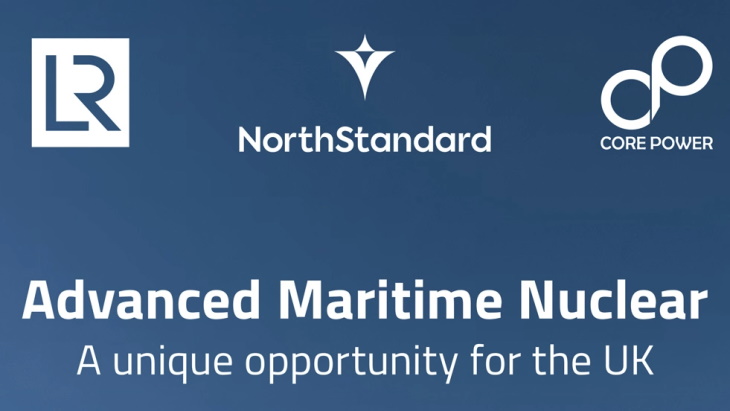"With 95% of goods arriving in the UK by ship and the International Maritime Organization (IMO) targeting net-zero greenhouse gas emissions from shipping by 2050, the nation must explore innovative solutions to sustain its maritime industry while meeting ambitious climate goals," the report says. "Advanced nuclear reactor technologies, including advanced small modular reactors, offer a transformative opportunity to decarbonise shipping and bolster the UK's position as a clean energy superpower. Floating Nuclear Power Plants (FNPPs) also offer a solution to the problem of port grid connectivity. FNPPs could provide clean power to ports, their facilities and equipment, and to visiting ships."
The report - titled Advanced maritime nuclear: A unique opportunity for the UK - says that with the right investments and policies, the UK can develop a multi-billion-pound industry. "However, unlocking this potential requires immediate and coordinated government action to address regulatory, economic and public perception barriers."
The document proposes a policy framework for the UK government to support the deployment of advanced small nuclear reactors on commercial ships and FNPPs.
Firstly, the Department for Transport's revised Clean Maritime Plan (CMP) - which was originally due in 2022, but failed to be published before the change in government in July 2024 - must include nuclear power. "Nuclear technology has advanced since 2019 and there is also an increased level of ambition for decarbonising shipping from the IMO, which may not be achievable without including nuclear-powered ships," it says.
Additionally, commercial insurability will be vital to get nuclear into the civil maritime space, the report says. In particular, operators of nuclear-powered ships will need to have maritime liability cover sufficient to cover a shipowners' liability in the event of an accident. "It is highly unlikely that nuclear liabilities will be capable of being insured at commercially competitive rates until the safety regulations are in place and the liability for nuclear risks is clearer."
"The ability to commercially insure nuclear propelled ships will be vital to the success of bringing nuclear to maritime," said Paul Jennings, managing director of global marine insurer NorthStandard. "It is important that governments understand the need for a civil marine nuclear liability convention within the framework of IMO and work towards creating an appropriate liability regime."
Recommendations
The report makes a number of recommendations for actions by the government. These include facilitating and coordinating dialogue between different governments and international organisations to update rules and regulations.
In the near-term, the UK Department for Energy Security and Net Zero should officially widen the mandate of the Office for Nuclear Regulation (ONR) to include floating nuclear applications and provide them with the budget to do so.
Recommendations for longer-term actions include facilitating interaction between relevant regulators, such as the ONR and the Maritime Coastguard Agency and local authorities, to enable the building, placing and operating of nuclear-powered ships and FNPPs. The government should also consider risk-reduction, cost-share award for advanced nuclear projects that meet certain parameters, including maritime nuclear, It should also support domestic supply chains for components and nuclear fuel (including enrichment capability).
"As nuclear technology advances toward maritime applications including floating nuclear power plants, global regulatory alignment is crucial," said Andy McKeran, chief commercial officer at maritime professional services provider Lloyd's Register. "Existing frameworks must be updated to reflect modern reactor designs and operational needs. The UK has the expertise to lead these efforts at the IMO and with the International Atomic Energy Agency, setting the foundation for safe, insurable, and scalable nuclear-powered shipping."
Mikal Bøe, founder and CEO of technology company Core Power, added: "The UK has been at the centre of global shipping for centuries, and this report reinforces that maritime nuclear power is not only necessary to improve the energy effectiveness of shipping dramatically but also a GBP2.5 trillion (USD3.2 trillion) economic opportunity. Over time, the cost of inaction will far outweigh the cost of being the champion in this rapidly emerging market."
By hosting and supporting London International Shipping Week in September 2025, "the UK government and the nation's stakeholders are presented with a crucial opportunity to leverage this international gathering to drive innovation, foster collaboration and realise the transformative potential of maritime nuclear solutions," the report says.







_55401.png)
_23009.jpg)






